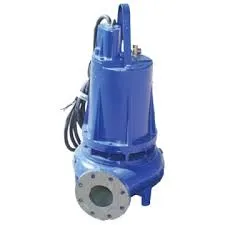Azerbaijani
- Afrikaans
- Albanian
- Amharic
- Arabic
- Armenian
- Azerbaijani
- Basque
- Belarusian
- Bengali
- Bosnian
- Bulgarian
- Catalan
- Cebuano
- Corsican
- Croatian
- Czech
- Danish
- Dutch
- English
- Esperanto
- Estonian
- Finnish
- French
- Frisian
- Galician
- Georgian
- German
- Greek
- Gujarati
- Haitian Creole
- hausa
- hawaiian
- Hebrew
- Hindi
- Miao
- Hungarian
- Icelandic
- igbo
- Indonesian
- irish
- Italian
- Japanese
- Javanese
- Kannada
- kazakh
- Khmer
- Rwandese
- Korean
- Kurdish
- Kyrgyz
- Lao
- Latin
- Latvian
- Lithuanian
- Luxembourgish
- Macedonian
- Malgashi
- Malay
- Malayalam
- Maltese
- Maori
- Marathi
- Mongolian
- Myanmar
- Nepali
- Norwegian
- Norwegian
- Occitan
- Pashto
- Persian
- Polish
- Portuguese
- Punjabi
- Romanian
- Russian
- Samoan
- Scottish Gaelic
- Serbian
- Sesotho
- Shona
- Sindhi
- Sinhala
- Slovak
- Slovenian
- Somali
- Spanish
- Sundanese
- Swahili
- Swedish
- Tagalog
- Tajik
- Tamil
- Tatar
- Telugu
- Thai
- Turkish
- Turkmen
- Ukrainian
- Urdu
- Uighur
- Uzbek
- Vietnamese
- Welsh
- Bantu
- Yiddish
- Yoruba
- Zulu
Telephone: +86 13120555503
Email: frank@cypump.com
Dek . 04, 2024 14:42 Back to list
1 Percent HP Septic Pump Specifications and Performance Overview for Optimal Waste Management
Understanding the 1% HP Septic Pump An Essential Component of Wastewater Management
In the realm of wastewater management, septic systems play a crucial role in the treatment and disposal of household waste. Among the various components that make up a septic system, the septic pump is vital for ensuring the efficient operation of the entire system. In this article, we will explore the significance of a 1% horsepower (HP) septic pump, its function, benefits, and considerations for homeowners.
What is a Septic Pump?
A septic pump is a mechanical device designed to move wastewater from the septic tank to the drain field. It is particularly essential in situations where gravity alone cannot facilitate the flow of waste. The pump helps in transporting sewage and effluent, ensuring that the system operates effectively and preventing any potential backups or overflow.
The Role of a 1% HP Septic Pump
The term 1% horsepower often refers to the power specifications of a specific type of septic pump. A 1% HP septic pump is typically rated at approximately 0.75 HP, which makes it suitable for smaller residential systems or applications where the volume of wastewater is moderate. These pumps are designed to handle various types of effluent and are capable of pumping waste up to a certain height, allowing for effective sewage management in homes that are not able to drain by gravity alone.
Why Choose a 1% HP Septic Pump?
1. Efficiency A 1% HP septic pump is energy efficient and can effectively manage the wastewater from an average household. This can lead to long-term savings on energy costs, making it a practical choice for homeowners.
1 hp septic pump

2. Compact Size Due to its lower horsepower rating, a 1% HP pump is typically smaller and easier to install. This is particularly advantageous for homes with limited space for septic system components.
3. Cost-effective Generally, 1% HP septic pumps are more affordable than their higher-powered counterparts. For homeowners seeking a reliable, economical solution for their septic needs, this option presents an attractive choice.
4. Adequate Performance For average-sized households with standard wastewater output, a 1% HP septic pump provides sufficient power to effectively convey waste to the drain field, thereby maintaining the health of the entire system.
Installation and Maintenance Considerations
Proper installation of a septic pump is crucial to ensure optimal performance. Engaging a professional plumber or septic system installer is recommended to evaluate the specific requirements of your septic system. Factors such as the distance to the drain field, the elevation change, and the volume of wastewater produced must be taken into account during installation.
Once installed, regular maintenance is essential for the longevity and efficiency of the pump. Homeowners should perform routine checks to ensure the pump is functioning correctly and free of debris. Additionally, it is vital to have the septic tank pumped every three to five years to prevent solids from overwhelming the system, which could lead to pump failure.
Conclusion
A 1% HP septic pump is a critical component for homeowners relying on septic systems for wastewater management. Its efficiency, compact size, and cost-effectiveness make it an ideal choice for many residential applications. However, the proper installation and ongoing maintenance of the pump are essential to ensure the system's effectiveness and longevity. By understanding the role of a septic pump and the specific advantages of a 1% HP model, homeowners can make informed decisions that contribute to the health of their households and the environment. Whether you are building a new home or replacing an old pump, taking the time to consider your options can lead to a healthier and more efficient wastewater management system.
-
Horizontal Split Case Pump with GPT-4 Turbo | High Efficiency
NewsAug.01,2025
-
ISG Series Pipeline Pump - Chi Yuan Pumps | High Efficiency, Durable Design
NewsAug.01,2025
-
Advanced Flue Gas Desulfurization Pump with GPT-4 Turbo | Durable & Efficient
NewsJul.31,2025
-
ISG Series Vertical Pipeline Pump - Chi Yuan Pumps | Advanced Hydraulic Design&Durable Construction
NewsJul.31,2025
-
ISG Series Vertical Pipeline Pump - Chi Yuan Pumps | Energy Efficient & Low Noise
NewsJul.31,2025
-
pipeline pump - Chi Yuan Pumps Co., LTD.|High Efficiency&Low Noise
NewsJul.31,2025










